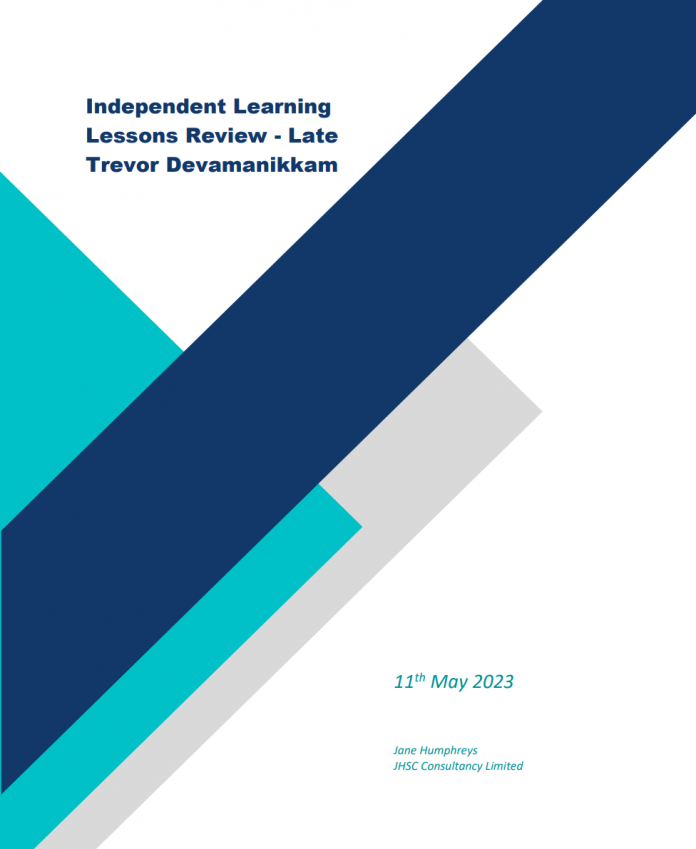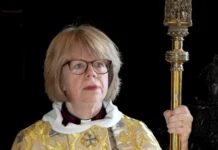The independent lessons learnt review into the Church of England’s handling of allegations against the late Revd Trevor Devamanikkam has been published today.
Trevor Devamanikkam was due to appear in court in June 2017, charged with six counts of sexual abuse in the 1980s, against a 16-year-old. However, he did not arrive for the hearing and was found dead at his home later that day. An inquest found that he had died by suicide. In 2012 and 2013, the survivor, himself a member of clergy at the time, alleged he made a number of disclosures of non-recent abuse to senior clergy, and they failed to act on them.
The review was commissioned by the National Safeguarding Team, NST, and carried out by Jane Humphreys, a Senior Social Care Consultant, and previous Director of Children’s and Adult’s Services with a career spanning more than 30 years.
Its purpose is to identify both good practice and failings in the Church of England’s handling of the allegations, including its safeguarding practice, in order that the Church can take steps to enhance and improve its response to allegations of abuse and thereby ensure a safer environment for all.
The reviewer concludes that, although Trevor Devamanikkam was not convicted of the offences against him, the survivor was sexually abused by him. She makes a number of recommendations for the Church including about lessons learnt reviews and responding well to survivors; as well as the need for clear guidance to all clergy and Church officers as to what they should do and who they should take advice from if copied into an allegation of abuse.
She also addresses and outlines the survivor’s request not to engage with the Review, noting that she has drawn on his written experiences and accounts of events from his submission to the Independent Inquiry into Child Sexual Abuse (IICSA) in July 2019, and from other documents.
Statement from independent reviewer Jane Humphreys
“This Learning Lessons review has taken far too long to complete and is well overdue. Whilst I respect the wishes of the survivor not to be involved in the review, I hope the findings and recommendations in my report give him some assurances that the abuse he suffered and the lack of support he received from the Church have now finally been recognised. It takes a lot of courage to disclose abuse and to not receive the right support and guidance at the time he disclosed his abuse is inexcusable, I hope he is now provided with the right support to rebuild his life. Sadly, this report would not have been required had the policies and guidance in place at the time the survivor disclosed his abuse been followed.
They were not, even though the disclosures were made only a decade ago at a time where the profile of safeguarding and protecting children and vulnerable adults was well publicised. This report also recognises that the late Trevor Devamanikkam had a significant history of mental illness and had been involved with a number of statutory agencies when he was subject to the police investigation. I have asked the Oxfordshire Safeguarding Adult Board to consider whether a safeguarding adult review should be undertaken to consider whether agencies involved with him, and the church could have worked together more effectively at that time.”
Statement from lead safeguarding bishop, Joanne Grenfell
“The Church should be ashamed that a vulnerable 16-year-old in its care was let down by the Church and abused by someone in a position of trust. We are truly sorry for the abuse he suffered and for our failure to respond well.
It is important that we now learn from this review. We thank Jane Humphreys for her work and welcome her recommendations, which will now go to the National Safeguarding Steering Group, including her comments about the length of time it took to commence and complete. Our response was not good enough and a new policy going to Synod this July about safeguarding practice reviews should help improve the process.
We respect the survivor’s decision not to take part. As the reviewer states, the survivor’s invaluable evidence provided to IICSA, along with other documents, helped her reach her conclusions. His voice remains important, as do the voices of all survivors, which must continue to inform our work.
We need to ensure that harm is prevented, wrongdoing reported, and victims and survivors heard. As well as better policies and practice, this will mean every member of the Church contributing to a healthier culture with vigilance, competence, and care.”
The Archbishop of York Stephen Cottrell has also welcomed the report and has given his commitment that the Church of England will learn from the recommendations to ensure the Church is a safer place for all.
“I would like to echo Bishop Joanne’s response and have made personal contact with the survivor. While safeguarding in the Church has improved enormously in the past 10 years, we can never be complacent and today’s report is a reminder that we still need to learn from how to respond well to those who come forward always being mindful that the effects of abuse are lifelong.”



